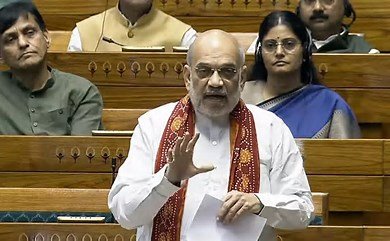New Delhi: The Central Government has unveiled a bold National Cooperation Policy, introducing sweeping reforms that will transform Primary Agricultural Credit Societies (PACS) and Service Co-operative Banks into powerful engines of grassroots development.
The policy redefines the role of these institutions by authorizing them to function as Programme Implementing Agencies (PIAs) for a wide range of government welfare schemes. These include the operation of Jan Aushadhi Kendras (affordable medicine outlets), petrol and diesel pumps, LPG distribution agencies, warehouses, fair price shops, common service centres, PM Kisan Samriddhi Kendras, and even rural piped water supply projects.
One of the policy’s ambitious goals is to upgrade Service Co-operative Banks into Multi-purpose Co-operative Societies, allowing them to go far beyond traditional banking. The government also aims to ensure financial accessibility by setting up a service co-operative bank in every panchayat, a district co-operative bank in every district, and an urban co-operative bank in every city, as announced by Union Home and Cooperation Minister Amit Shah.
Additionally, the policy mandates the rollout of a unified software system for co-operative institutions—despite earlier resistance from Kerala—and proposes the creation of state-level cooperative databases, which will be integrated with a national cooperative database for better transparency and coordination.
Seen as a game-changing initiative, the new policy positions co-operatives at the heart of India’s rural and urban development, bringing essential public services closer to citizens while revitalizing the cooperative ecosystem.




